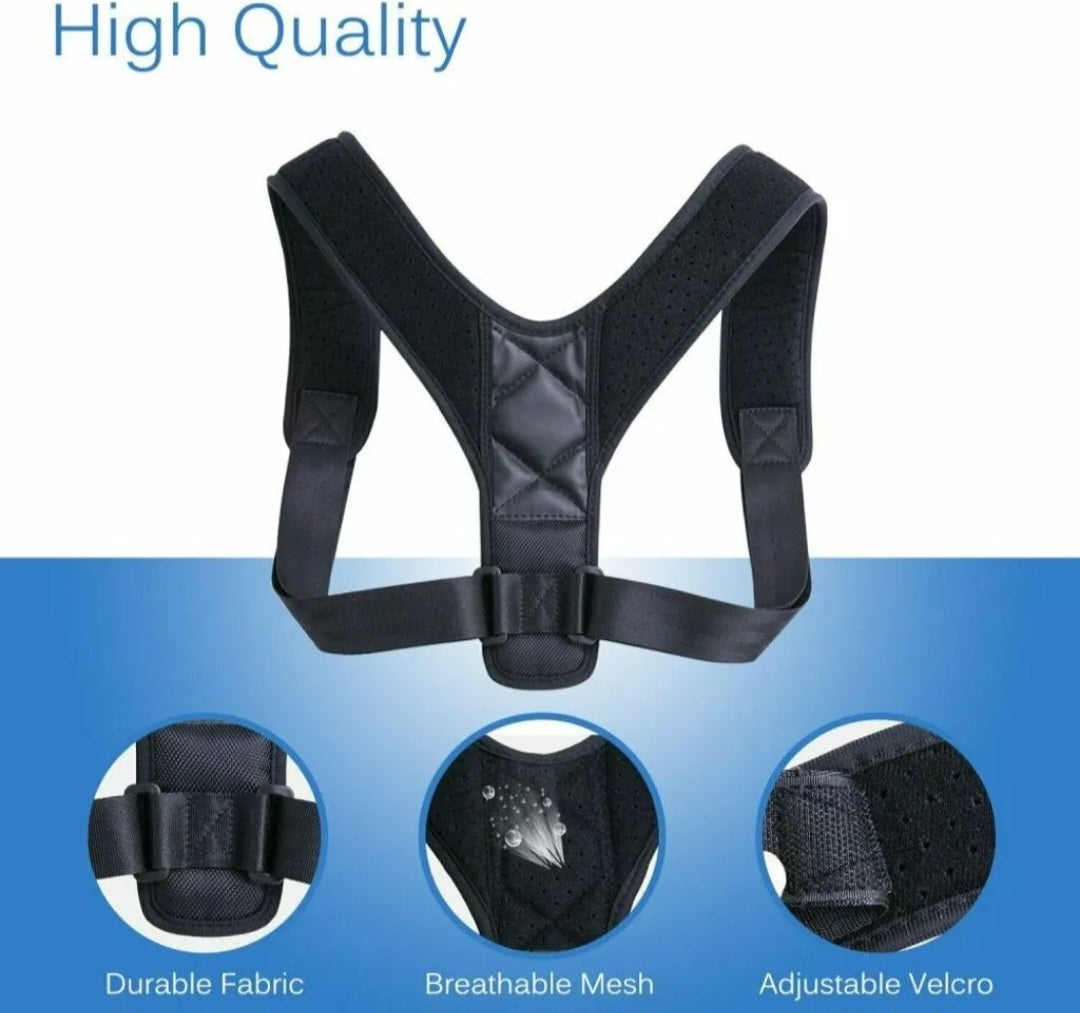
Posture Corrector vs. Chiropractor: Which Saves You More Money in the Long Run?
Share
Introduction
Did you know that 80% of adults experience back pain at some point in their lives, often due to poor posture? With remote work and sedentary lifestyles on the rise, slouching has become a silent epidemic. While chiropractors offer relief, their recurring costs can strain your budget. On the other hand, ergonomic posture correctors promise a one-time investment to fix posture permanently. But which option truly saves you more money over time?
In this post, we’ll dive into the long-term costs, effectiveness, and convenience of chiropractic care versus posture correctors. By the end, you’ll see why thousands are ditching expensive clinic visits for affordable, wearable solutions.
Understanding the Costs: Chiropractor vs. Posture Corrector
Chiropractor Costs Breakdown
Chiropractors specialize in spinal adjustments to relieve pain and improve alignment. While effective for acute issues, the financial commitment is staggering:
-
Initial Consultation: 65–200+ (varies by location and practitioner).
-
Per-Session Fees: 30–200 per visit. Chronic pain patients often need 2–3 weekly sessions.
-
Maintenance Visits: After the initial phase, monthly adjustments cost 75–150 each.
-
First-Year Cost Estimate:
-
Acute Phase (3 months): 3 visits/week x 12 weeks = 36 visits
-
36 visits x 75(average)=∗∗2,700**
-
-
Maintenance Phase (9 months): 1 visit/month x 9 months = 9 visits
-
9 visits x 75=∗∗675**
-
-
Total Year 1 Cost: $3,375
Long-Term Costs:
-
Year 2 onward: 12–24 visits/year = 900–1,800 annually

Hidden Expenses:
-
Missed work hours for appointments.
-
Travel costs (gas, parking, public transit).
-
Insurance deductibles (many plans cover only 10–20 sessions yearly).
Posture Corrector Costs Breakdown
A high-quality ergonomic posture corrector is a one-time purchase designed to train your muscles and eliminate dependency on external treatments:
-
Upfront Cost: 50–150 (varies by features like adjustable straps, breathable fabric, or sizing options).
-
Maintenance: Most devices last 2–3 years with proper care. Replacement straps (if needed) cost 20–30.
-
First-Year Cost Estimate: 120(average)∗∗∗∗Long−TermCosts∗∗:∗∗0–$30 every 2–3 years
Effectiveness and Long-Term Benefits
Chiropractic Care: Short-Term Relief, Long-Term Dependency
Chiropractors excel at relieving acute pain, but they rarely address the root cause: poor posture habits. Without consistent adjustments, muscles revert to old patterns, leading to relapse.
-
A 2018 Spine Journal study found 60% of patients reported recurring pain within 6 months of stopping treatments.
-
Adjustments don’t strengthen muscles or correct daily slouching at desks or phones.
Posture Corrector: Training Your Body for Lasting Change
Posture correctors work by gently pulling your shoulders back, training muscles to maintain alignment subconsciously. Over time, they:
-
Strengthen Core and Back Muscles: By promoting proper alignment, they reduce strain on ligaments.
-
Break Bad Habits: Real-time feedback stops slouching during work, driving, or screen time.
-
Prevent Chronic Pain: A 2020 Journal of Physical Therapy Science study showed 89% of users improved posture within 8 weeks of daily use.

Long-Term Savings:
-
Avoid costly surgeries or painkillers for chronic issues like herniated discs.
-
Reduce sick days and boost productivity with pain-free movement.
Convenience and Accessibility
Chiropractors: Time-Consuming and Inconvenient
-
Appointment Hassles: Booking weeks in advance, waiting rooms, and travel.
-
Limited Availability: Rural areas often have few practitioners.
-
No Immediate Relief: Pain between visits can disrupt daily life.
Posture Correctors: Wearable, 24/7 Support
-
Instant Use: Wear it during work, workouts, or chores.
-
Discreet Design: Fits under clothing for all-day support.
-
No Travel or Wait Times: Ideal for busy professionals and parents.
Combining Both Approaches for Severe Cases
If you’re recovering from an injury, pairing occasional chiropractic visits with daily posture corrector use can accelerate healing while minimizing costs. For example:
-
Monthly Chiropractor Visit: $75
-
Daily Posture Corrector Use: 0.16/day(basedona150 device over 2 years)
-
Total Annual Cost: 75x12+150 = **1,050∗∗(vs.3,375 for chiropractic-only care)
Why Our Ergonomic Posture Corrector is the Smart Choice
Not all posture correctors are created equal. Our Ergonomic Posture Corrector stands out with premium features:
-
Adjustable Straps: Customize tension for light reminders or firm support.
-
Breathable, Latex-Free Fabric: Hypoallergenic and sweat-wicking for all-day comfort.
-
Scientifically Backed Design: Developed with physical therapists to target upper back and shoulder muscles.
Conclusion: Invest in Your Health—and Your Wallet
Chiropractic care offers temporary relief, but the $3,000+ annual costs add up quickly. Meanwhile, an ergonomic posture corrector trains your body to maintain proper alignment naturally, saving you thousands while preventing future pain.
Don’t just treat symptoms—solve the root cause. Click below to explore our clinically designed posture corrector, backed by a 30-day guarantee:
FAQ
Q: How long should I wear a posture corrector daily?
A: Start with 15–30 minutes daily, gradually increasing to 2–3 hours as your muscles adapt.Q: Can I wear it during exercise?
A: Yes! Our corrector supports posture during workouts, yoga, or walks.Q: What if it doesn’t work for me?
A: We offer a 30-day refund policy—no questions asked. -
-
-

